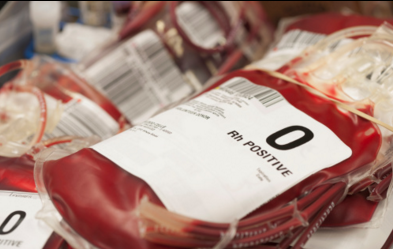For those who have ever donated blood, the thought of being turned away from the process undoubtedly seems humiliating, unfair and immensely biased. However, this experience is one that has been shared by gay and bisexual men for more than 30 years. In 1983, very little was known about HIV and AIDS, causing a hysteria that created a blanket stigmatization over all homosexual men. The disease was labeled a “gay illness,” and the FDA enacted a lifetime ban on blood donations from men who had sex with other men. The fear was a contamination of blood donations and subsequent health issues for those in need of transfusions. Little thought was given to this rule until just recently, when the FDA changed the terms slightly, now allowing gay and bisexual men to donate blood given that they had abstained from sex for the past 12 months.
When the health of others is involved, it is absolutely fair to place restrictions on blood donations. However, there is no scientific legitimacy behind preventing gay men who have had sex within the past year but not straight people who may very well have had unprotected intercourse with partners without knowing their sexual history. All individuals who have had intercourse without knowledge of their partner’s health should therefore be banned from donating for the same amount of time. HIV transmission was never and will never be solely limited to male sexual intercourse, so this alteration to the ban is really just a continuation of the wrongful stigma that created it 40 years ago.
There is also a huge issue in terms of accuracy (how would you really know when the last time someone had intercourse was) and verification (no written proof of who is heterosexual or homosexual). The ban itself seems baseless and homophobic. in 2006, the American Association of Blood Banks deemed the ban both “medically and scientifically unwarranted.” Additional research from the Journal of Sexually Transmitted Infections found that gay men had similar rates of unprotected sexual partners as straight men and women. It is crucial to remember that giving blood is not a “right” afforded to some groups and taken away from others. If you want to donate and are healthy, you should be able to.
Every two seconds in the United States, someone requires blood to survive. There are 9.2 million donors in the country who supply as much as they can of the 41,000 daily blood donations necessary throughout the healthcare system. The blunt fact of the matter is that all blood donated, no matter who it is from, is screened and tested for any possible issue that would negatively impact whomever receives it. No blood with disease, a virus or harmful components moves forward. So enacting a rule in which a gay man in a monogamous relationship with no health issues can not donate his much-needed blood to impact the life of a stranger is heinous and scientifically invalid. If the FDA believes a ban is absolutely necessary, than heterosexual individuals who have had sex with any partner without knowledge of their full health record should be banned as well.


